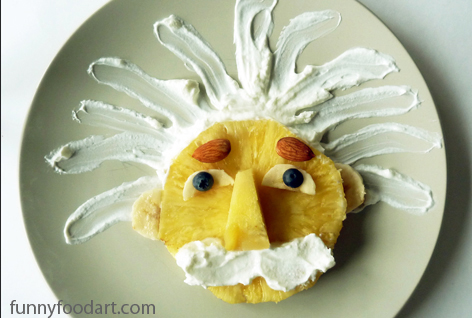
Last night, our 5 1/2-year-old granddaughter, Daniela, had dinner with us and Bill made a mischievous character with his food. Daniela laughed hysterically when Bill developed a hilarious narrative for the character. It was a very special moment for the two of them.
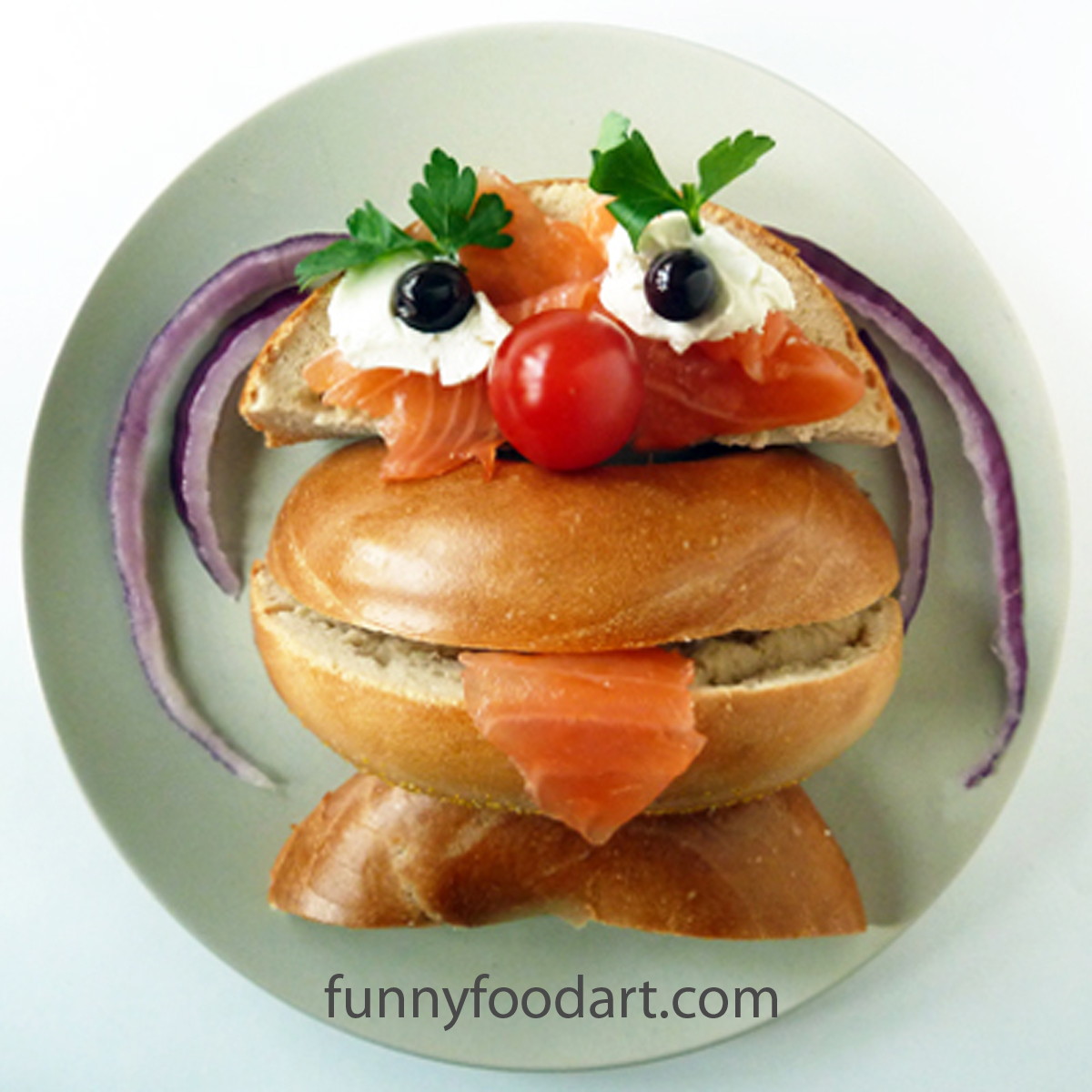
Daniela is building her play history with the experiences she has with her grandfather -- the enjoyment, the creativity and humor will be stored in her memory.
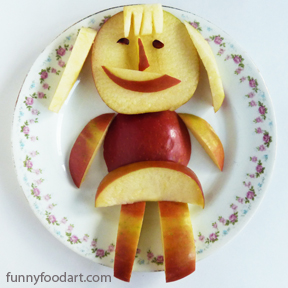
In this Ted Talk, Dr. Stuart Brown said "play in childhood makes us happy and smart adults."
Play is essential in the development of children's brains. It helps promote cognitive, social, emotional and physical growth. Imaginative food play is fun and teaches children about good nutrition, but it is much more. Dr. Ginsburg's research shows how play has an important role in promoting healthy development and maintaining strong relationships between parents and children.
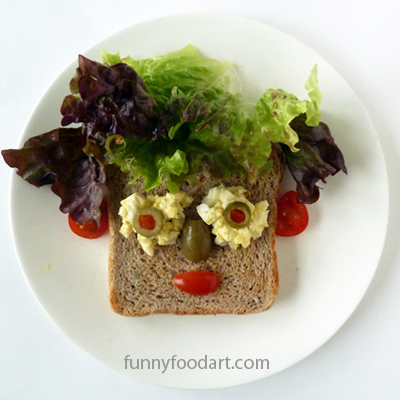
Play fires up the brain and sends impulses to the frontal lobes that builds skills such as shaping behavior by activating or inhibiting other brain regions. Daniela is learning self-regulation and self-control when she laughs at a funny food creation at the dinner table. Self-regulation helps kids and the adults cope with stress.
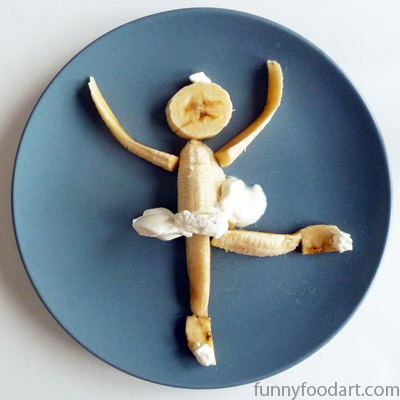
Daniela enjoys Bill's images and she also likes to make her own healthy food. When she plays with her food, she is learning cognitive flexibility. If she makes something that doesn't turn out as expected, she has learned to use the food in innovative ways to create something else.
Research suggests that divergent play material, like blocks, and funny food, contribute to children's ability think creatively; to solve divergent problems, make discoveries. Our two older grandsons, Ethan (18) and Simon (16), cherish the memories of food play with Bill.
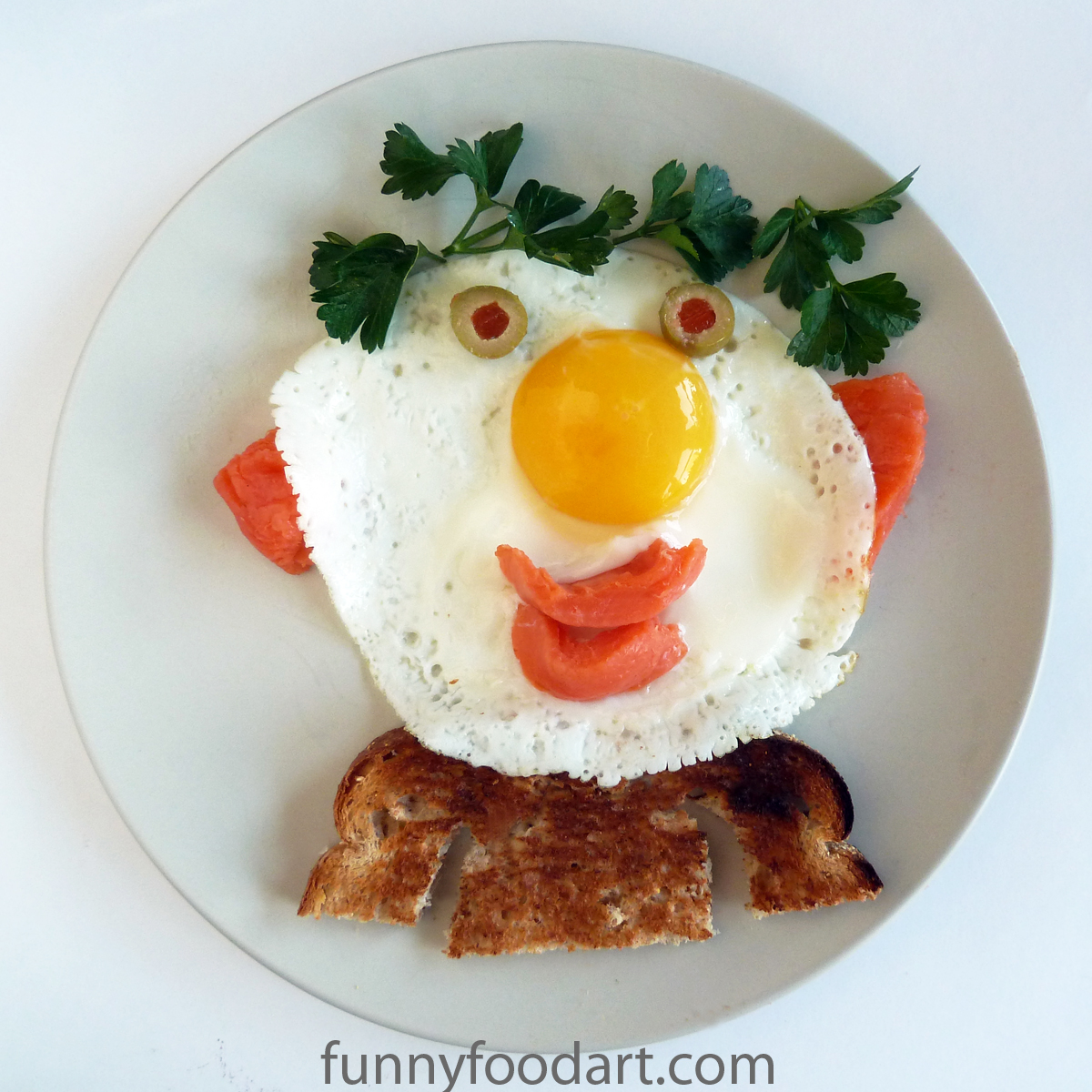
And, both boys are exemplars of creative problem solvers who can come up with multiple solutions to a problem. So it must be true!
See more Funny Food! Like us on Facebook
